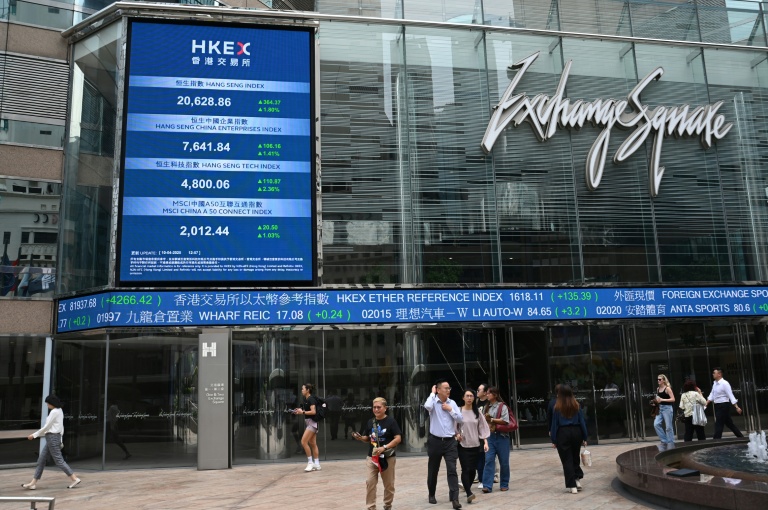Hong Kong’s economy exhibited a robust and better-than-anticipated performance in the second quarter, marking a significant 3.1 percent expansion according to recent government estimates. This notable uplift signals a period of renewed vitality for the city’s financial landscape, surpassing initial projections and offering a positive counter-narrative amidst ongoing global economic complexities.
A primary driver behind this accelerated growth was the remarkably strong export sector, buoyed by businesses strategically positioning themselves to leverage the easing of certain US tariffs. This proactive engagement by enterprises underscores the dynamic adaptability of Hong Kong’s trading mechanisms in navigating fluctuating international trade policies and seizing emerging opportunities.
Despite its unique status as a special administrative region with distinct trade policies, Hong Kong remains intricately linked and, at times, susceptible to the broader ramifications of US tariff decisions. Its significant role as a re-export hub for Chinese goods means that any shifts in US-China trade relations can directly influence its economic trajectory and market stability.
Further bolstering the economic expansion was a discernible improvement in domestic demand, coupled with an impressive 11.5 percent increase in exports. This dual momentum contributed to what a Hong Kong government spokesperson described as a “solid” period of economic expansion, reflecting strengthened internal consumption alongside external trade performance.
Earlier in the year, the landscape of international trade was marked by escalating tariffs between China and the United States, reaching prohibitive levels before a negotiated truce brought them down to more manageable figures. This historical context highlights the delicate balance that global economies, including Hong Kong’s, must maintain in the face of evolving geopolitical and trade tensions.
However, recent announcements from the US president regarding renewed tariffs on key trading partners such as South Korea, Brazil, and India, cast a shadow over the future. Hong Kong’s government has acknowledged that this pattern could similarly impact its economy in the latter half of the year, potentially exerting pressure on both global trade flows and domestic economic activity.
The government spokesperson also noted that the uncertain pace of US interest rate adjustments would affect overall investment sentiment, adding another layer of complexity to Hong Kong’s financial outlook. Despite these external pressures, the second-quarter estimates revealed positive internal trends, with private consumption, which had previously declined for four consecutive quarters, increasing by 1.9 percent.
The city’s services exports also demonstrated significant strength, recording a healthy 7.5 percent growth. Furthermore, Hong Kong’s capital market has experienced a strong rebound this year, attracting numerous companies from mainland China seeking to raise overseas capital. This influx is largely attributed to supportive policies from the Chinese government and optimized listing regulations by Hong Kong regulators, reinforcing its position as a vital financial hub in Asian markets.
Despite the seemingly modest growth targets set for the full year—a “prudent” two to three percent—Financial Secretary Paul Chan acknowledged the enormous uncertainty and volatility stemming from the current geopolitical landscape. Economists also pointed out that the observed economic growth has not yet been fully reflected in the labor market, suggesting a cautious but steady path forward for the Hong Kong economy.






Leave a Reply